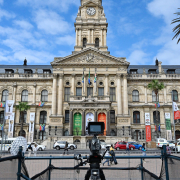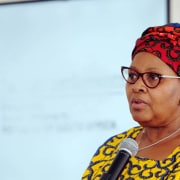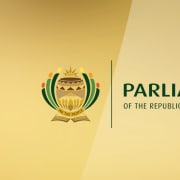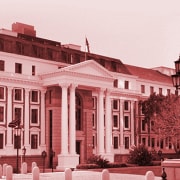|
Getting your Trinity Audio player ready...
|
As Parliament set out on its work of constituting committees to shadow the different cabinet portfolios announced by President Cyril Ramaphosa on Sunday 30 June 2024, two committees are noticeably missing from the list.
The National Assembly (NA) has to date established 30 of the committees, out of 32 portfolios, as part of its processes. The number of portfolio committees increased in the seventh legislature, from 27 in the sixth.
But the NA has postponed the constitution of the Judicial Services Committee (JSC) nomination list of Members of Parliament, which make up the legislature component of the full committee. Another committee that is still to be announced is the Standing Committee on Public Accounts (Scopa) which is traditionally chaired by a member of one of the opposition parties, with its chairpersons usually returning after a change of Parliament, owing to the need for continuation in that area of Parliament’s work.
The last of the Scopa chairpersons was Mkhuleko Hlengwa of the Inkatha Freedom Party, who has now joined the executive as the deputy minister of transport following the establishment of the government of national unity (GNU) last month.
Further deliberations
The inclusion of former Western Cape Judge President John Hlophe on the list of NA nominees for the JSC has predictably elicited reaction. He was nominated by his party, MK, which holds a 58-seat presence in Parliament. Hlophe was impeached in February this year after a 16-year probe into misconduct relating to his time on the bench. It was on the recommendation of the JSC that Parliament’s decision to impeach him was based. He has since come out in media interviews as saying that his removal from the bench was politically motivated.
The NA sat on Tuesday to deliberate over the nominations for parliamentarians who would make up part of the JSC, and along with Hlophe, other nominees include Soviet Lekganyane (ANC), Fasiha Hassan (ANC), Glynnis Breytenbach (DA), Julius Malema (EFF), and Athol Trollip (Action SA).
ANC Chief Whip Mdumiseni Ntuli has since requested the withdrawal of the motion to move ahead with the constitution of the list, saying that it was best for the political parties involved to discuss. Hlophe has a pending application to the Constitutional Court to have his impeachment reversed.
Hlophe undesirable for JSC
Outside of Parliament, however, six civil society organisations have since written to NA Speaker Thoko Didiza, raising concerns about the nomination of Hlophe.
In the letter, Freedom Under Law, the Council for the Advancement of the South African Constitution, Judges Matter, the Helen Suzman Foundation, Defend our Democracy and the Ahmed Kathrada Foundation raised the point that the JSC played a central role in the appointment of judges. It reads: “Bearing in mind the extensive powers vested in the judiciary under the Constitution, it is no exaggeration to say that the work of the JSC is therefore crucial to the rule of law and constitutional democracy in South Africa.
The organisations added that: “Designating an individual to the JSC who has been found by the very body in question to have committed gross misconduct and has been removed from a position as a judicial officer to play a role in the selection of other judicial officers would be completely inappropriate…it would be irrational and, in our view, susceptible to legal challenge, and it would undermine public confidence in the judicial appointments process, and thereby in the judiciary.”
Only the best for judicial committee
In a separate statement, Judges Matter called on Parliament to select those members who will strengthen and protect the judiciary, to ensure an independent judiciary that upholds the rule of law and delivers justice for all South Africans. The rule of law is essential for economic growth, the creation of jobs, and safety and security for all.
“For several years, Judges Matter has called for a Code of Conduct to be developed for both the Judicial Service Commission and the Magistrates Commission. The Code must hold commissioners to high ethical standards, with the option to recall those commissioners who fail to uphold it.
“But while that process is underway, Parliament needs to come to the party and select only those members who will meet those high standards. An obvious disqualifier is anyone who has been implicated in serious ethical breaches, state capture and/or misconduct. Parliamentarians represent the people of South Africa in those commissions, and Parliament must send only the best representatives.”








